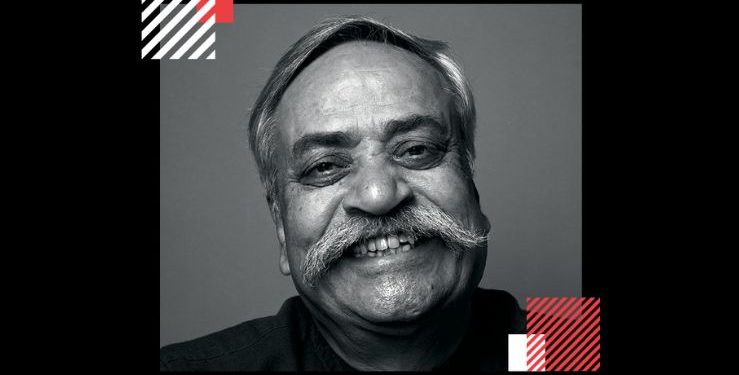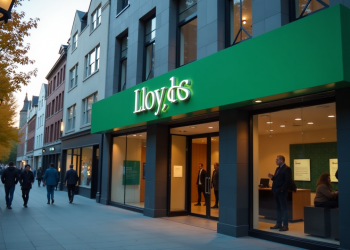Piyush Pandey, the moustachioed maverick who transformed Indian advertising with his earthy storytelling and infectious joie de vivre, passed away on Thursday at the age of 70.
A Padma Shri awardee and the face of Ogilvy India for over four decades, first as chairman and later as chief creative officer, worldwide, Pandey was credited with creating some of the most iconic and enduring advertising campaigns in the country’s history.
Whether it was the unforgettable Cadbury Dairy Milk commercial — where a young woman bursts onto a cricket field, dancing in joy to celebrate her lover’s century with a bar of the chocolate in hand — or the timeless Fevicol ads that captured the humour and heart of everyday India, Pandey’s work redefined how brands spoke to the nation.
His philosophy was simple yet profound: that the most powerful stories are rooted in the rhythms and realities of ordinary Indian life.
John Seifert, former chief executive, worldwide at Ogilvy, said in an interview in 2018,
Piyush is deeply rooted in society and culture and the humanness of our world. He’s also someone who doesn’t look backwards, only forwards and who is enthusiastic, excited and humble. He’s someone everyone can be inspired by.
A storyteller of the Indian soul
Pandey’s creative genius wasn’t confined to the commercial world.
He was also the mind behind the Bharatiya Janata Party’s 2014 campaign slogan, “Ab Ki Baar, Modi Sarkar” — a line that became a national chant and helped Prime Minister Narendra Modi connect with the common Indian voter.
The slogan’s resonance helped shape one of the most decisive election victories in Indian history, one that has endured across three terms.
Shri Piyush Pandey Ji was admired for his creativity. He made a monumental contribution to the world of advertising and communications. I will fondly cherish our interactions over the years. Saddened by his passing away. My thoughts are with his family and admirers. Om Shanti.
9.2K
Reply
Copy link
“Piyush Pandey entered a profession that spoke in beautifully nuanced English aur usko apni zubaan ka khubsoorat zaika pesh kiya (and offered it the beautiful flavor of our own language),” wrote Indian commentator and journalist Harsha Bhogle, paying a tribute to Pandey on X (formerly Twitter).
He flew high in the advertising world par kadam is sanskriti se alag kabhi nahi hue (but never distanced himself from Indian culture). He could take on layered communication needs aur usko itni aasaani se suljhaya ke hum sab waah kehte reh gaye (and simplified them so beautifully that we were left in awe).
“If you want to leave a mark in your profession, to Piyush Pandey bano. Advertising ka gold mohur (the gold standard of advertising). Goodbye my friend. Alvida.”
Pandey’s journey into the ad world and his contribution to Ogilvy India
Born in 1955 in Jaipur, Rajasthan, Pandey’s path to advertising was anything but linear.
Before joining Ogilvy India in 1982 as a client servicing executive, he tried his hand at cricket, tea-tasting, and even construction.
His breakthrough came after moving to the creative department, where his instinctive grasp of Indian culture, humour, and emotion set him apart.
(Photo credit: Ogilvy)
Under his leadership, Ogilvy India became one of the most awarded agencies in the world and a breeding ground for generations of creative talent.
In 2018, Pandey and his brother, filmmaker Prasoon Pandey, became the first Asians to receive the prestigious Lion of St. Mark at the Cannes Lions International Festival of Creativity — a lifetime honour celebrating their global influence on storytelling.
Pandey’s contributions were further recognised with the Padma Shri in 2016 and the LIA Legend Award in 2024.
Known for his belief that creativity must serve business, he often reminded his teams that great advertising doesn’t just entertain — it transforms brands.
His book ‘Pandeymonium’ became literature for budding marketers who wanted a sneak peek into his life and mind, what shaped his views on advertising and life in general.
Campaigns that became cultural touchstones
Pandey’s hallmark was his ability to make advertising speak in the language and emotion of the Indian public.
Moving away from the English-centric ads of the early years, he built narratives that reflected real people and their lives — simple, authentic, and full of heart.
Some of his most memorable campaigns include:
Fevicol: The witty and enduring campaigns like “Fevikwik” and the “Fevicol Sofa” ad, which humorously illustrated the glue’s unbreakable bond.
Cadbury Dairy Milk: The “Kuch Khaas Hai” campaign, celebrating unrestrained joy and the sweetness of everyday victories.
Asian Paints: “Har Ghar Kuch Kehta Hai”, capturing the emotional connection between people and their homes.
Bajaj: The patriotic “Hamara Bajaj” campaign, positioning the brand as an inseparable part of Indian life.
BJP 2014: The political masterstroke “Ab Ki Baar, Modi Sarkar”, a slogan that became part of India’s political lexicon.
Through his words and vision, Piyush Pandey gave Indian advertising its own language — one that was deeply local, delightfully human, and unmistakably Indian.
The post Piyush Pandey dies at 70: The ‘Fevicol’ & ‘Cadbury’ adman who changed Indian ads appeared first on Invezz










